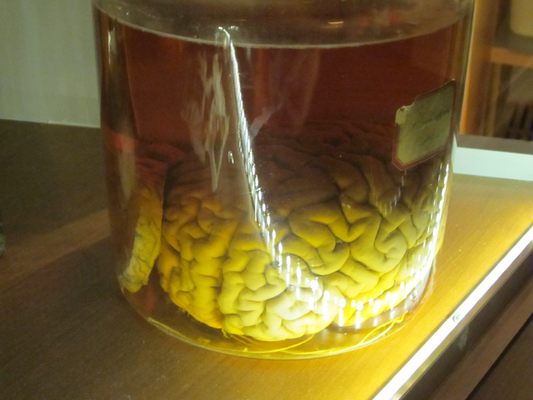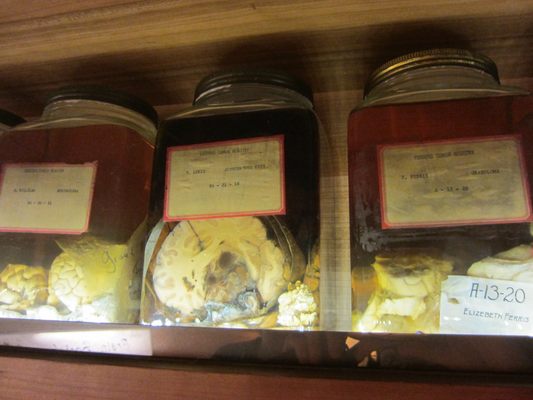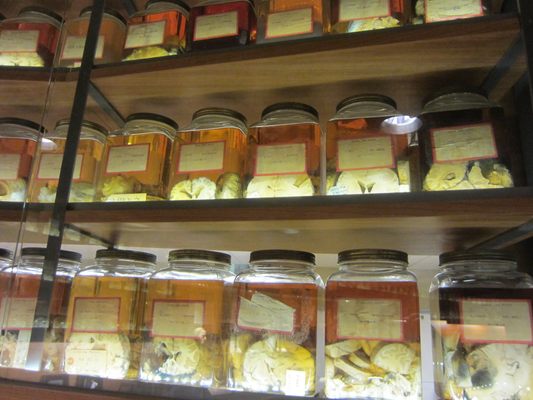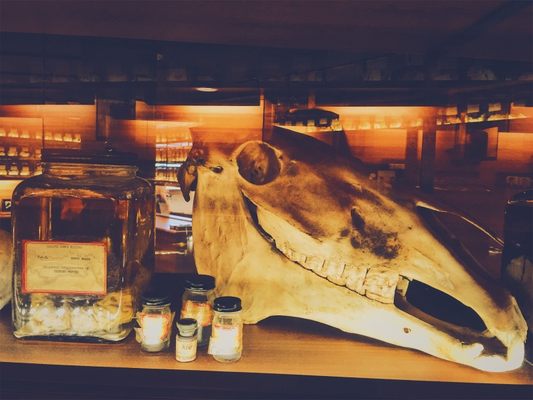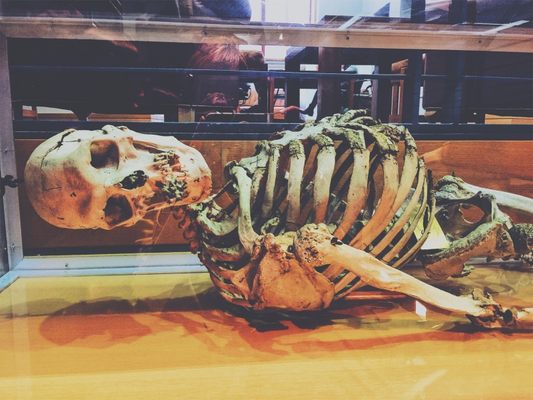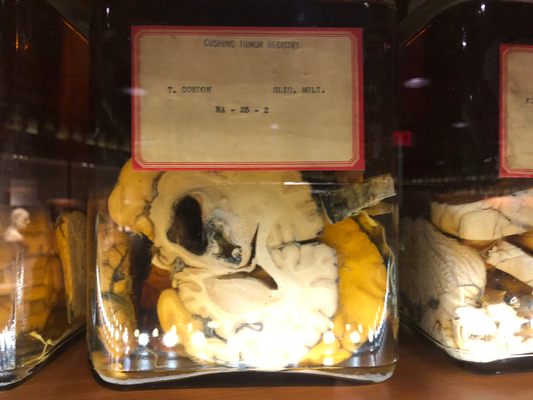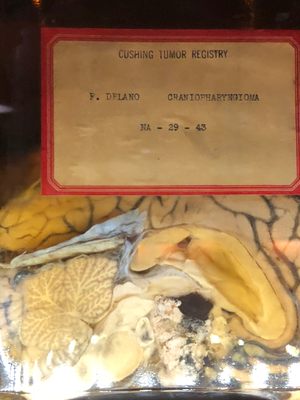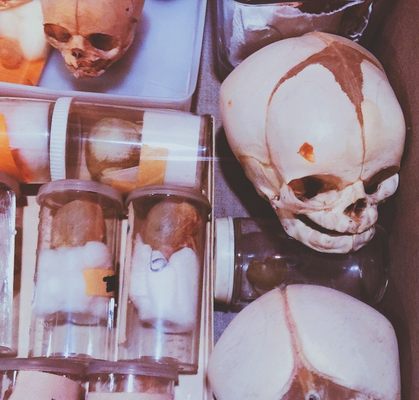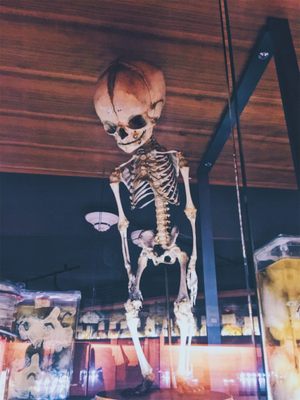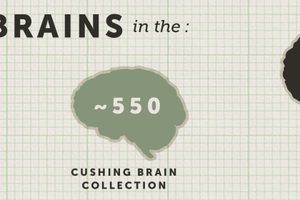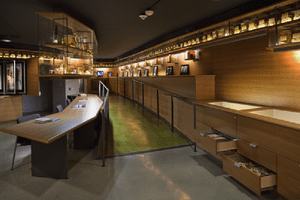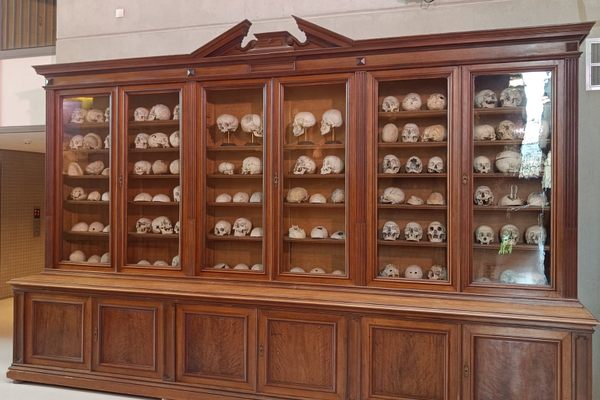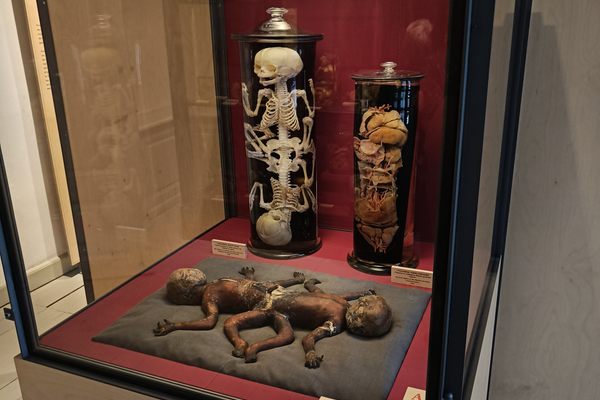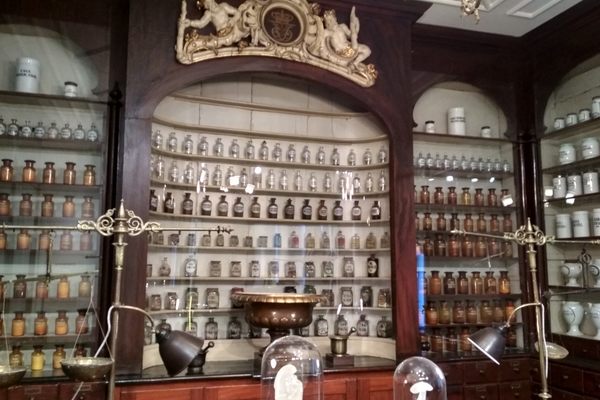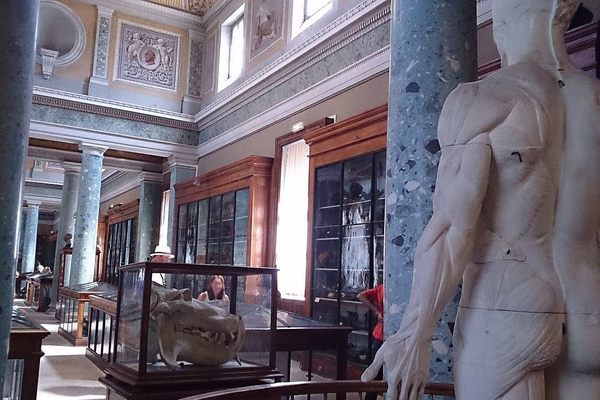About
The mission of the Cushing Center is to inspire wonder about the human brain and its disorders, to educate visitors about the history of modern neurosurgery, and to respectfully steward the remains of patients contained within the Cushing Brain Tumor Registry.
The Cushing Center is home to an archival collection of over 2,200 case studies which includes human brain specimens, tumor specimens, microscopic slides, notes, journal excerpts and over 15,000 photographic negatives dating from the late 1800s to 1936.
The collection began in 1902 when Dr. Harvey Cushing discovered one of his specimens was misplaced by the Johns Hopkins Pathology department. To avoid future misplacements, Cushing decided it was safest to retain the specimens himself. The registry documents the history of neurological medicine from its beginning.
The Cushing Center resides in the lower level of the Harvey Cushing/John Hay Whitney Medical Library and opened on June 5, 2010.
Dr. Harvey Cushing was an award-winning surgeon, Pulitzer Prize-winning author, World War I veteran, and gifted artist. His academic and professional life was dedicated to studying the brain and developing new and radical diagnoses and surgical techniques to help patients suffering from debilitating and often lethal brain tumors.
Related Tags
Know Before You Go
Before your visit to the collection, be aware of the sensitivities around human remains collections, including medical ethics. The brains in the collection are displayed so that the pathology of each specimen can be seen for educational and research purposes. Demonstrate respect for the patients and the specimens on display.
Starting on January 1, 2024, access to the Cushing Center will change. Check this page for information on how to visit the collection before you go.
Community Contributors
Added By
Published
October 12, 2011

